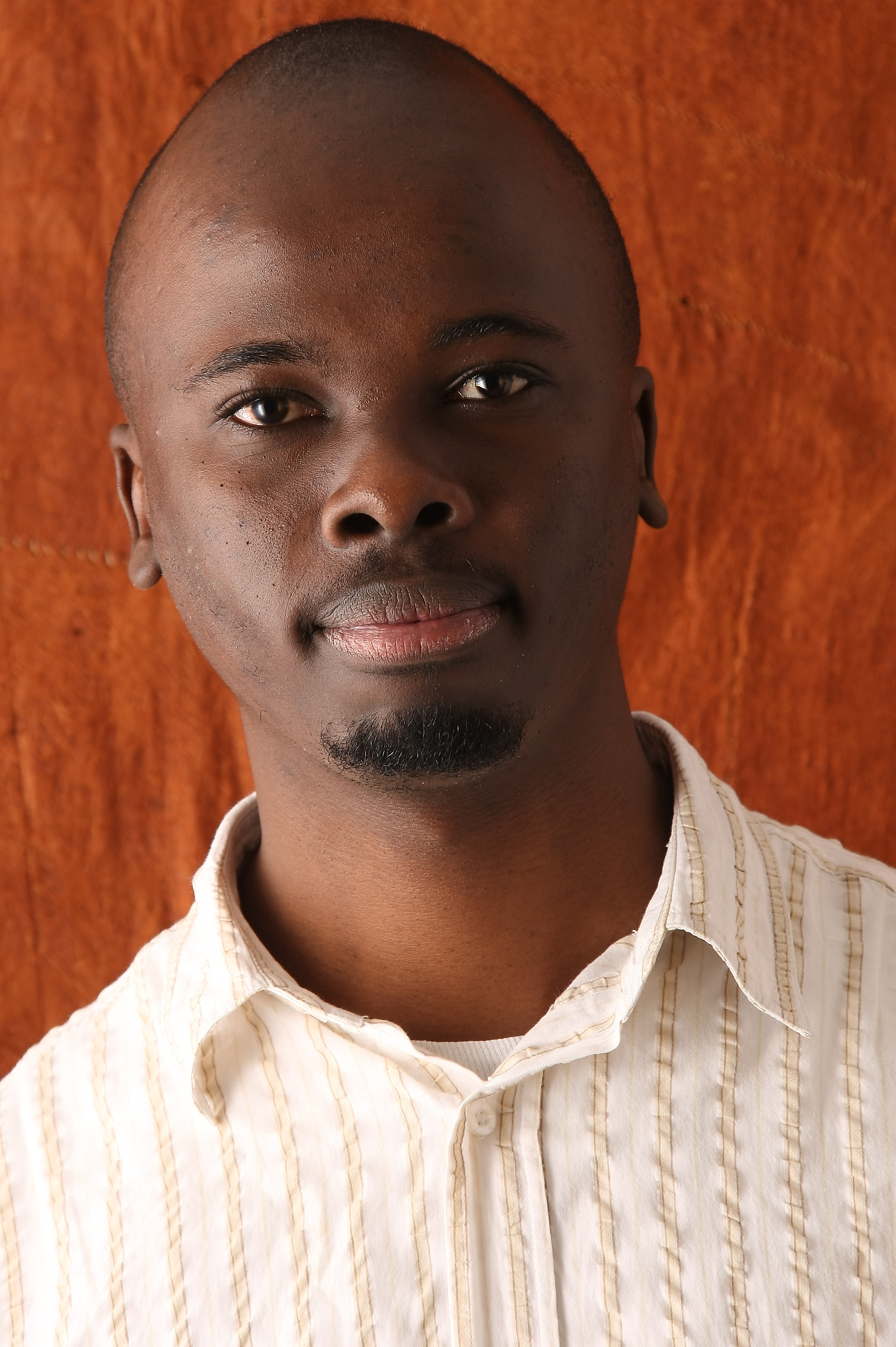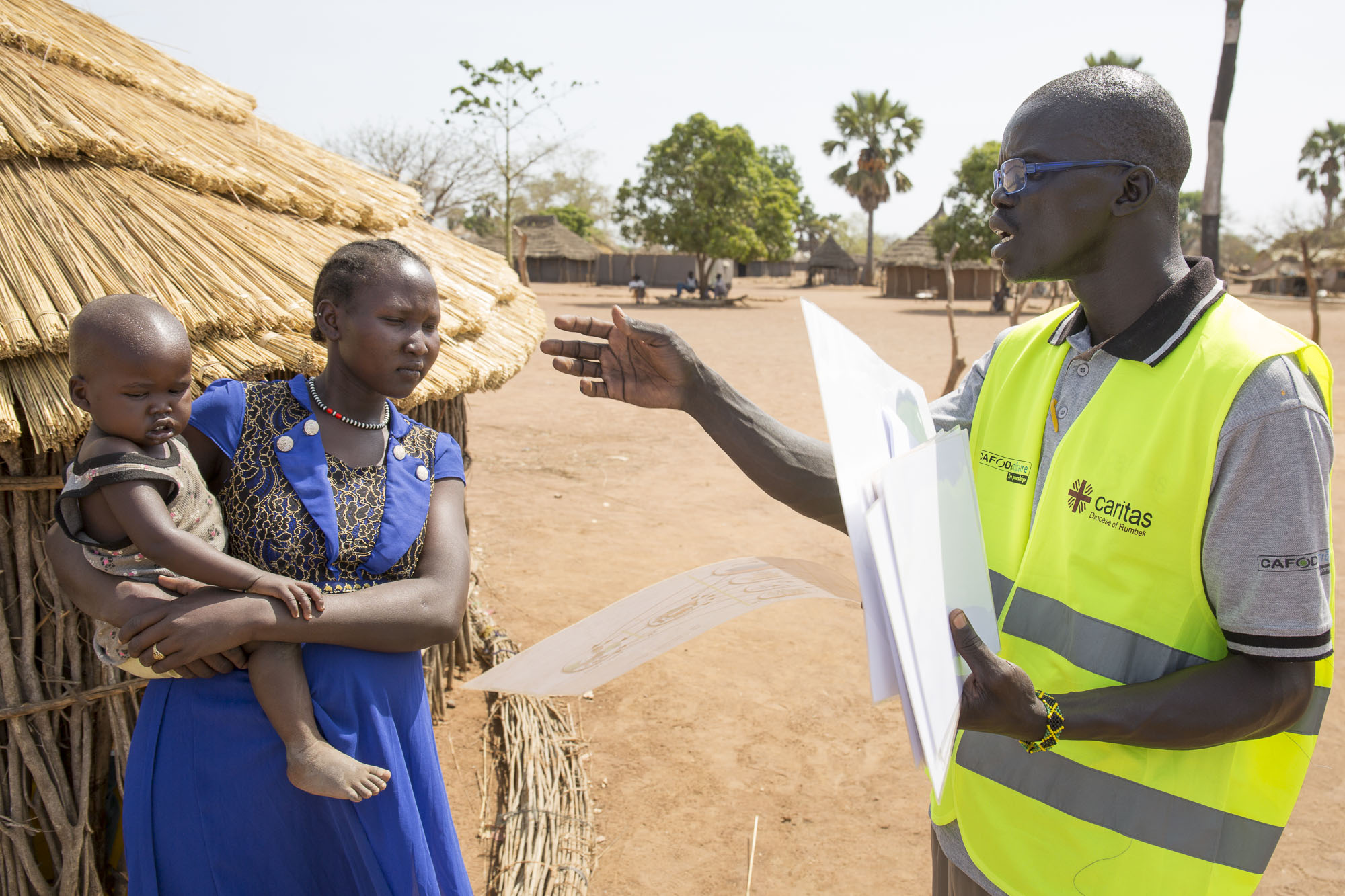
To reach Adior, we swing off the main road on to a track more suitable for cattle than a motor vehicle, and practically impassable in the rainy season. There is no one – no animals, no people, not even the sound of birds. Occasionally we pass a collapsing mud hut, long deserted by its occupants.
This part of South Sudan’s Yirol East province has suffered civil war, cattle raids and disease. Yet after 45 minutes the dense bush thins, and a tall radio mast comes into view, next to a grass-roofed hut.
We are in Adior village, where Andrea Makoi, a 36-year-old volunteer, is talking on the radio to a colleague in Shambe village, 45 miles away. At his side, Deng Malek, 34, takes notes. All three are combating the longest cholera outbreak South Sudan has ever experienced. It is a virulent disease. The World Health organisation (WHO) declared an outbreak in June 2016, with the disease spreading to many parts of the country, including the capital, Juba. Widespread fighting and cattle raids by armed youth have forced millions of people to flee from the countryside into towns or refugee camps, straining availability of food and basic items. Water sources are often contaminated as a result, causing epidemics in many camps.
Andrea explains why the volunteers, trained by the British charity, CAFOD, and its Irish partner, Trocaire, have taken over a disused VHF radio network to do their work. “The road from Shambe to here is quite precarious,” he says. “A delegation of humanitarian workers who went to assess the situation in the area were attacked on their way back by unknown gunmen. Two people were killed and three were seriously injured.”
Since then it has been deemed too dangerous for villagers from Shambe to travel to the health clinic in Adior run by Doctors for Africa. So every day, Andrea and his team contact fellow volunteers in the surrounding villages, who update them on the latest number of people infected.
Despite the violence, they are able to keep clear records of cholera infection rates in the area, and, when possible, to organise transfers to the clinic for the most extreme cases. The tragedy is that when conditions are normal, cholera is not difficult to treat or prevent. CAFOD and Trocaire volunteers, such as Andrea and his colleagues, spend most of their time on hygiene promotion work, the effectiveness of which is shown by the reduction in cases in Adior. “By going door to door, they have advised people on how to handle food and water, and engage in sanitary practices that reduce the spread of cholera,” says Mike Chol, a nurse at the clinic. “They have also trained them on how to prepare oral rehydrating salt solutions whenever they notice a member of the community presenting cholera-like symptoms.”
Volunteers from communities that have sought refuge in Adior have also been trained, ensuring that the message of good hygiene reaches them as well. “Simple practices such as boiling drinking water and covering food can lead to prevention of cholera,” said Anthony Kumi, a programme officer for water hygiene and sanitation with Cafod and Trocaire The campaign against cholera reached its widest audience in Nyang Town, Yirol East. Under the slogan “Our Hands, Our Future”, traders and business owners cleaned up the market as children marched and sang hygiene songs. More than 5,000 people watched a street performance by schoolchildren on the importance of clean hands, followed by speeches and a demonstration by county officials of proper handwashing techniques, using soap.
According to WHO, cholera in South Sudan has claimed 436 lives, and 20,000 cases were dealt with. Everyone remains alert to the warning signs that might signal another outbreak. Families here, and in other conflict zones across the world, should be safe from this type of preventable disease, as well as from conflict. Only an end to hostilities will allow communities to be supported to receive one of the basics of daily life – clean water and good hygiene. Which in turn will prevent the disease breaking out again and again.
David Mutua is CAFOD’s Africa News Officer, based in Nairobi, Kenya
Pic: Volunteers promoting good hygiene practice in South Sudan, pic by David Mutua



 Loading ...
Loading ...
What do you think?
You can post as a subscriber user ...
User comments (0)